Hello everyone
This week I have spent a couple of days house-sitting for my sister, much to the disgust of her cats. The first morning I realise I have forgotten to bring my coffee (my sister is not a coffee drinker), despite having carefully packed my cafetière and my ‘morning’ coffee mug. No worries - it gives me the incentive I need for the five minute walk to the local shops. I pick up my phone and my keys and head off. As I get close to the run of shops I see the gleam of a ten penny piece on the ground. Like a magpie I swoop in and snatch it up. After all, ‘see a penny, pick it up; all the day you’ll have good luck.’
I amble on a little further, past the fish and chip shop and the estate agents, before coming to a charity shop. I hesitate. Second-hand books are such a temptation to me. I don’t need more books! But also, there are books that I do want to buy, and if I saw one of the ones on my ‘want to read’ list, it would be worth acquiring. (I think we’ve already established here that I am not to be trusted with library books…)
There is a wire basket of books outside. I flip through the titles, picking up all the old hardback books and turning them to read their spines: The Nurses Guide to Modern Medicine (I bet it is fascinating - mustn’t buy it!), The Children of the New Forest by Captain Marryat (an old favourite, I have at least one copy at home), Lay of the Last Minstrel by Sir Walter Scott (tempting - I think this is one of the pieces of literature I was supposed to read for my university degree and didn’t…).
The next old hardback. In gold lettering on the front I see the name Charles Lamb. Jackpot! In the microsecond before my eyes take in the title I know I will want this book (unless it is Tales from Shakespeare, I’ve already had to whittle that one down to just one copy). Essays of Alia. Never heard it. But I want it! I look inside the cover for the price. In pencil is written 60p. Dammit. I only have my phone with me, and, despite being reasonably sure that shops are no longer charged per card transaction, I still have the mindset that you need to spend at least a couple of quid, if you are using your card. I can’t put £0.60 on ApplePay. Perhaps there are a couple more books in the basket, or inside the shop, that I can pick up. I look back down at the basket and see a label with the words ‘only 5p each’. Hang on? My 10p piece!
Obviously I could stroll inside and hand over my ten pence in exchange for my book and give a lofty ‘keep the change!’ But the paltry beneficence of this feels insulting and would make me feel like a Dickensian villain. I grab The Lay of the Last Minstrel, feeling sure that the Charity Shop Ladies will be glad to see the back of these rubbishy old books that no one could possibly want, when they could instead have one of the many glossy hardback celebrity autobiographies inside. (No shade on celebrity autobiographies, for those who read them. I have read some myself, and have even given a couple of them space on my bookshelves.)
It may seem like the message of this newsletter will be ‘take every opportunity that comes your way.’ After all, that is the message of the rhyme. However, grabbing everything that comes your way is not the way to success (or ‘good luck’). That is a road that ends in a cluttered home, mind and schedule. Maybe there are some people out there who need to make more small efforts to take chances when they arrive, but I think most people take opportunities, when they have the time, energy and mental or emotional capacity to make use of them. Plus, letting opportunities slip by is okay. You can often retrace your steps, even if the path back is slightly different than it would have been.
Which is what happened in truth to me this week, on my walk to buy coffee. I didn’t actually pick up the ten pence piece. I saw it, thought of the rhyme, still left it lying on the ground (and the two pence piece I saw later) and it wasn’t until I saw that the book I wanted was only five pence that I thought ‘I could go and pick up that ten pence from the street and buy the book with that.’ (The rest of the story is true. I did get the Walter Scott book as well, in order to avoid the embarrassing sense of being a condescending Victorian philanthropist.)
This idea, that meandering through life is not only acceptable but even the whole point, was captured in an essay I enjoyed on Substack this week entitled It Is Never Too Late To Rise Into Your Wholeness and Purpose, by Solarah. She is right. We are here to learn and to respond to life as it unfolds (to ‘experience the power of our multidimensionality in the material’ - I love this phrase!). When we take detours in life we get the chance to experience things and learn things that we can use. ‘Nothing is ever wasted on our journeys…’
Our path through life has been on my mind this week as I am currently working more concretely on my protagonist’s backstory for my ‘Charity Shop’ novel (I’m sticking with this, as much as I want to get started on a (comedy?) novel about a tradwife). I am using the prompts in Lisa Cron’s excellent book Story Genius and we have got to the point where we figure out the defining moment in the character’s past that informs their ‘fatal flaw’ (LC prefers the less judgy term ‘misbelief’). Cron has an exercise where you write a scene, in full, capturing ‘the moment when your character’s worldview shifted’ (Cron, 2016, p.104).1 In order to do this, I need to go further back in my character’s life to understand what her worldview was in the first place and why. Phew!
This shifting back and forth in writing is a normal part of the process. Even when writing the simplest essay under exam conditions, I would use arrows and asterisks to move sentences, paragraphs and even whole sections around, to improve the unfolding ’narrative’ of the essay. Reading is a more linear process usually, even if you are reading a novel with time-shifting. You start at the beginning and you read through to the end. Mostly. At least you are ‘supposed to’, unless it is a Choose Your Own Adventure book.
Life is also linear: we are born, we live, we die. But somehow, it doesn’t feel linear. Perhaps this is because we are always in the middle of it. We might have an awareness of some of ‘the story so far’, but we cannot ever know our whole story. In fact, no one can ever know our whole story. Those who were there at the beginning are unlikely to be there at the end. I was there for both William’s birth and his death, but there is still so much I didn’t know about him: his thoughts, his feelings. One of the saddest parts of losing a young child is the loss of all those conversations you can have as they grow older, where, as they increase in their own understanding of themselves, you can ask questions and get to know who they really are.
Which brings me back to what I am trying to do here. Tell some of my story, at least. The bits of the middle that I know, which is frankly not very much. Writing and telling stories is one of the ways I try to work out who I am. As the advert in the front of my new copy of Essays of Elia says, books (and stories) are a necessity. Reading other people’s words, and writing my own, helps me gain a little more clarity as I wander through life. Unfortunately, in life, I cannot skip ahead to read later chapters or the end, in order to reassure myself or prepare myself, as I often end up doing with novels. Life is, despite its meanderings, more linear than that.
Charles Lamb’s essays are, it turns out, a nineteenth century blog, and his writing is giving me and my sister much amusement as I finish up here. So, more blogging please everyone! Let’s all tell our stories.
Emma xx
Welcome to all my new readers! It is wonderful to know that so many people are reading and enjoying my writing. To read the Wondering Steps archives, learn more about me, manage your subscription and more, click the button below.
If you have enjoyed this post, please hit the heart button at the top or bottom of the page to ‘like’ it. I love reading and responding to comments, so click the little speech bubbles at the top or bottom of the page or the button below to leave me comment!
If you would like to support me and my writing further, please subscribe, if you haven’t already. And please share this post and Wondering Steps with anyone who you think would enjoy it!
Bye for now! Emma
Postscript
You may have noticed that I have added a ‘Book recommendations’ tab to my page. This will take you to the Bookshop.org website and to my ‘shop’. I do not sell you any books from this (i.e. I am not involved in the fulfilment, shipping or customer service), but it is an affiliate link, and I may earn a commission from Bookshop.org if you buy a book from the website. This is currently only for people in the UK, I’m afraid.
I am also planning to add links to Amazon within my newsletters. Again, these will be affiliate links and I may earn commission from Amazon if you order from them. Please buy your books from your preferred bookseller!
Cron, L. (2016) Story Genius. Berkeley: Ten Speed Press.


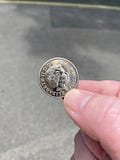


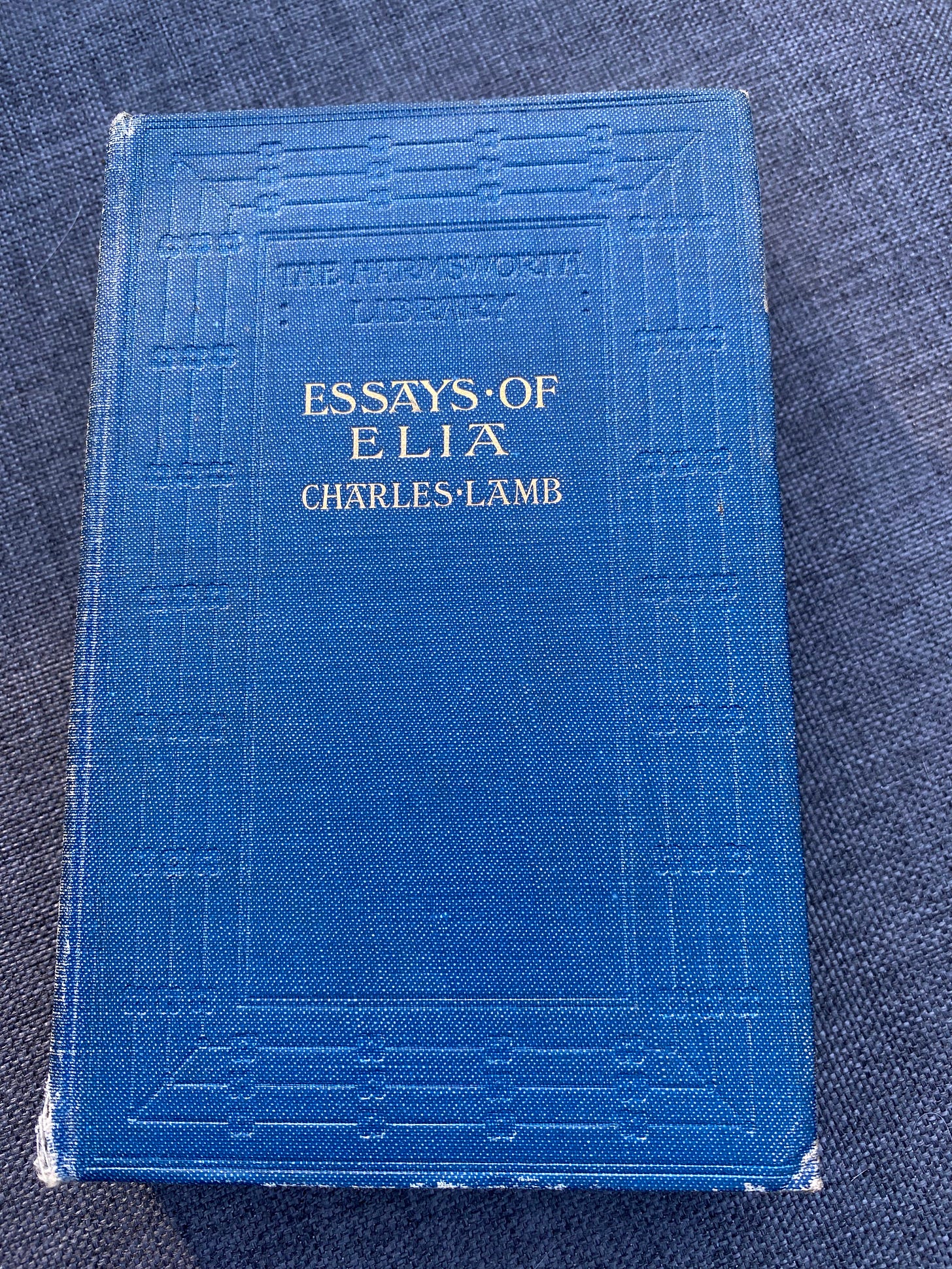
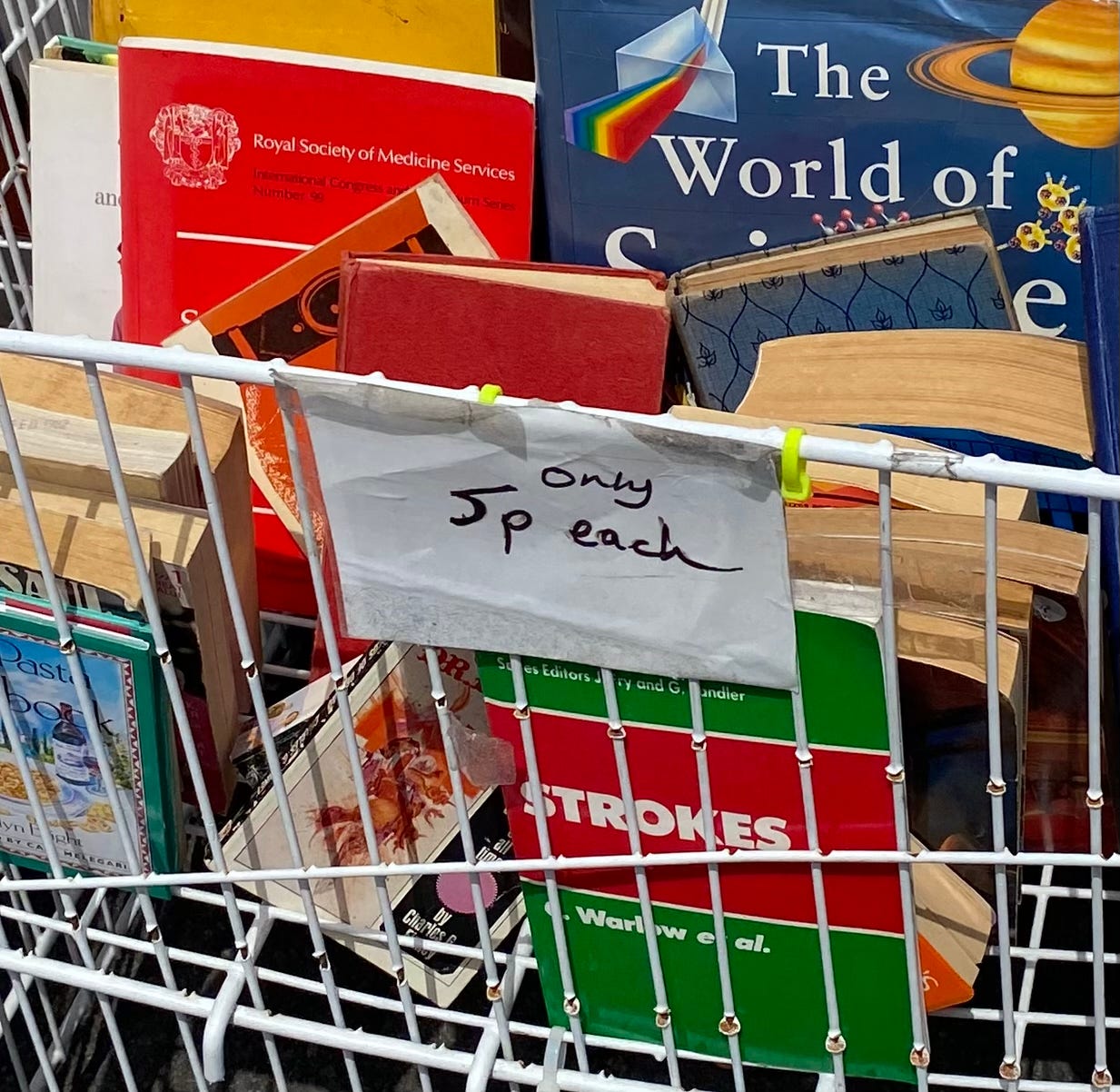
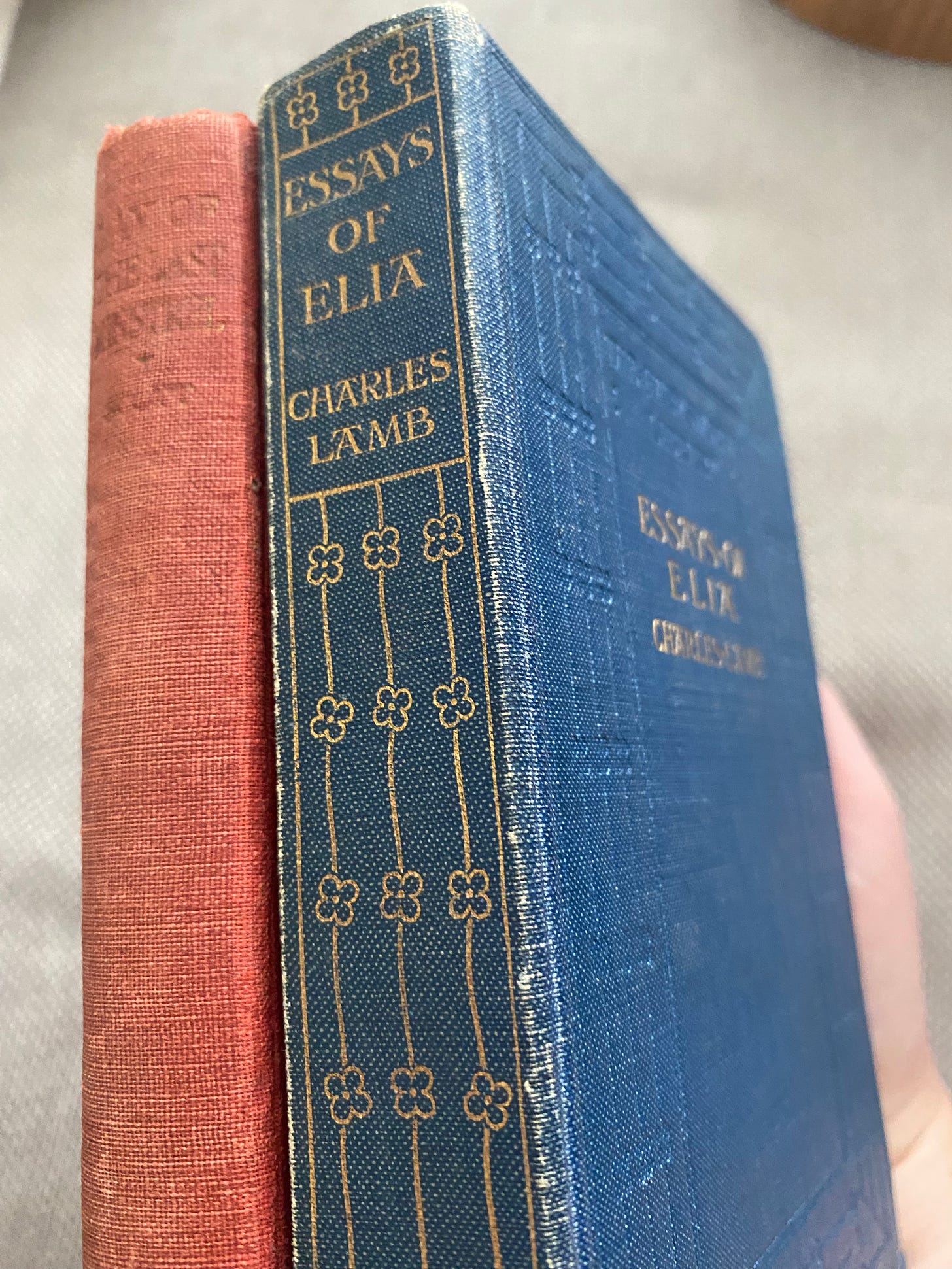
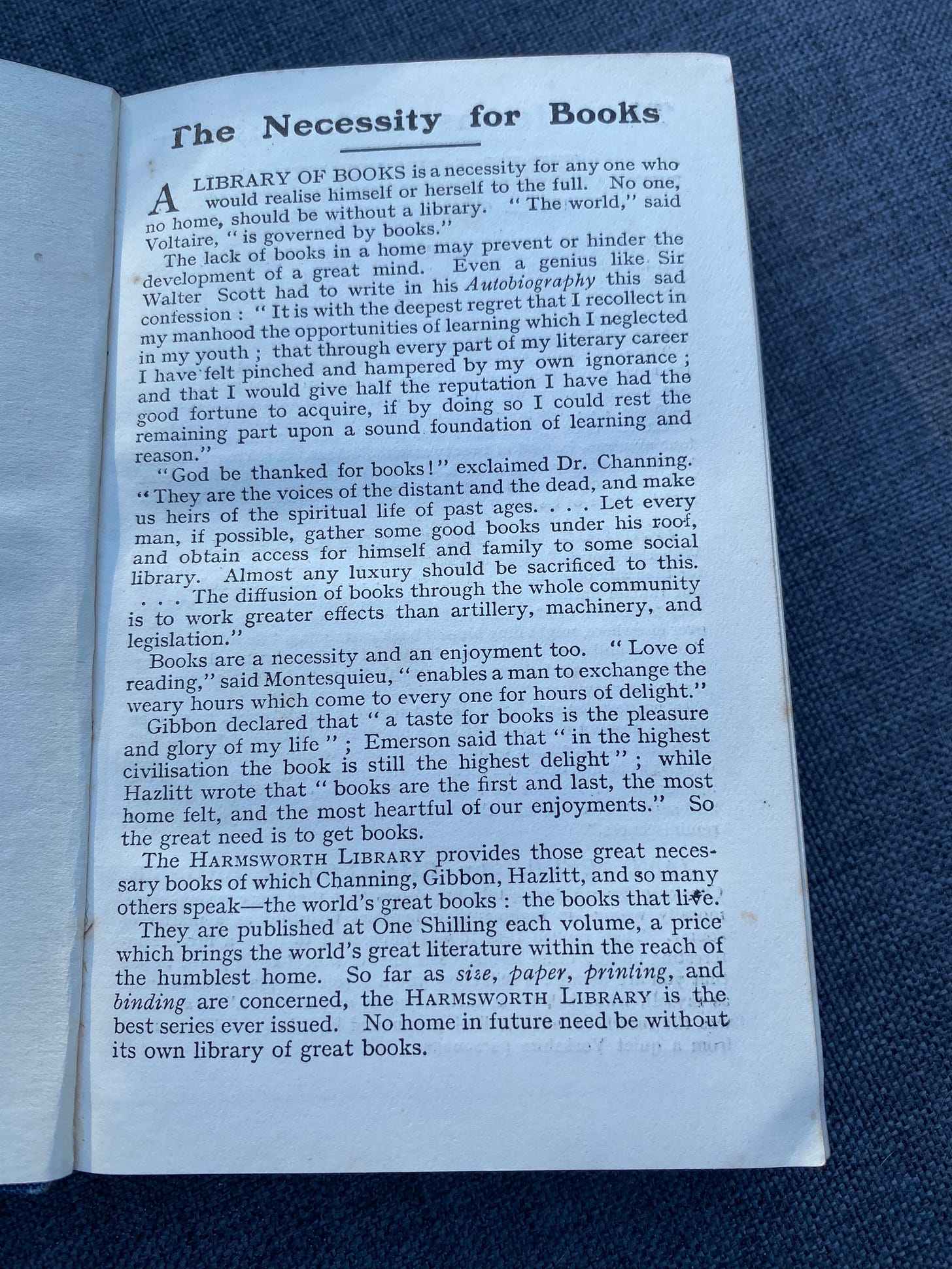
Excellent essay. I'm like you with second hand bookshops, I really find it very difficult to resist!
Emma, I loved this post! Like you, I'm a bibliophile. I can't even go into bookstores much because I will always purchase a book or more. My local library is huge, so I'm always checking out books. A lovely addiction, but an addiction nonetheless.